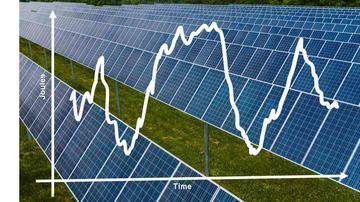Interface and Electronic Materials Laboratory
Battery Intelligence Lab

The rapid growth of renewable energy sources, particularly solar power, has significantly contributed to global efforts to combat climate change and transition to sustainable energy systems. To maximise the integration of solar energy into the grid, there is a pressing need for precision forecasting methods that can predict solar power generation with high accuracy and reliability. This project focuses on advancing the field of precision forecasting for terawatt-scale solar energy installations, aiming to improve the efficiency and stability of solar energy integration. The primary objectives are to develop advanced forecasting models that leverage physics-informed machine learning algorithms that describe the solar module beyond what us currently possible via circuit model. Such statistical techniques can help predict solar power generation with high precision. The project will also involve the collection and analysis of comprehensive data sets from solar energy installations, including historical solar irradiance, weather patterns, and power generation data. The student will identify key variables and patterns that influence solar power generation when new solar module models are deployed. In collaboration with our partners at the Department of Engineering, we also aim to investigate the impact that high-resolution spatial and temporal data, acquired via novel metrology devices, has on forecasting accuracy. The developed models can provide precise forecasts at different time scales, from minutes to days and at varying geographical scales. This project will also involve collaboration with grid operators and energy management systems to understand how to best exploit precise solar power forecasts into grid operations. We will explore real-time forecasting updates and feedback mechanisms for optimal grid management. We seek a student with expertise and passion for electrical engineering, renewable energy, and computer and data science, showing strong analytical and problem-solving skills to tackle complex computer modelling challenges. Proficiency in programming languages would be beneficial, such as Python and R. Good understanding of semiconductor physics, data analysis techniques, and statistical modelling algorithms, along with basic knowledge of solar energy systems, photovoltaic technology, and the factors affecting solar power generation, such as solar irradiance, weather patterns, and panel efficiency. Overall, this research aims to address a critical need in the renewable energy sector. By developing advanced forecasting models and techniques, this work seeks to enhance the reliability and efficiency of solar power integration into the grid, contributing to the global transition to sustainable and clean energy sources. The project's outcomes will have far-reaching implications for the renewable energy industry and the fight against climate change..